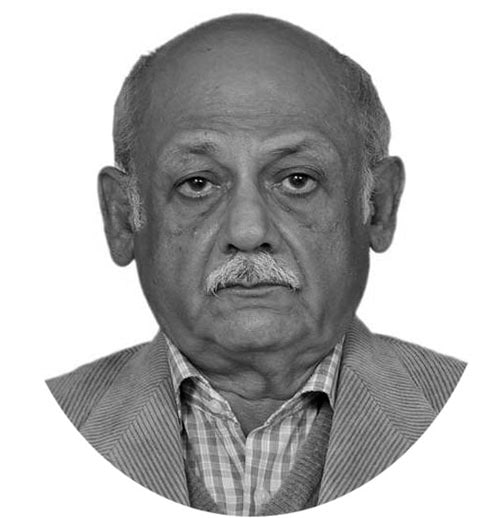American foreign policy and aftermath
THE collapse of the Soviet Union America emerged as the sole super power in the world. Rivalries of the cold war era were gone and a new geo-strategic and politico-economic game started on the chess board of world politics.
Throughout the 20th century American presidents have influenced and guided foreign policy by deciding if they will use diplomatic means to deal with an issue of international relations or they will make use of armed intervention or war.
History is a witness to the fact that after approval of Congress the country’s foreign policy was dictated by President of the time including the first and second world wars, the rabid opposition to the Soviet Union, the isolation of Communist China, the blanket support of Israel, the Vietnam War, the invasion of Iraq and also the change of regime in Afghanistan and the war on terror.
Some sane and timely decisions have resulted in great success and benefit for the world such as the show down with the Soviet Union on the Cuban missile crisis in 1962 that resulted in the avoidance of a possible third world war.
Some policy decisions by the American Presidents have also resulted in tragic and serious consequences not only for America but also for the world community at large.
The 2003 invasion of Iraq, the armed intervention in Afghanistan, involvement in Vietnam, Bay of Pigs disaster in Cuba, CIA involvement in Chile and support of ruthless dictators all over the world has resulted in grief and tragedy for their country and danger to the world community.
Various American Presidents have supported and propped up dictators like the Shah of Iran, Marcos of the Philippines, Diem family of Vietnam, Ayub and Musharraf of Pakistan and some lesser known despots in other parts of the world.
Foreign policy has been defined as a policy pursued by a nation in its dealings with other nations, designed to achieve national objectives.
It has also been said that in international relations there are no permanent friends or permanent enemies; only permanent national interests.
American Presidents have supported or dumped their most ardent supporters when they followed their permanent national interests a prime example is the Shah of Iran or even President Marcos of the Philippines.
The Obama Administration did not have a great influence on foreign policy he continued with the old guard policies because militarists who supported the 2003 invasion of Iraq held key positions in his cabinet such as General Jones of the Bush era.
The Afghan crisis worsened with the increase of sixty thousand combat troops and he also did not close down the [in-]famous Guantanamo Bay interrogation centre.
He endorsed and supported the controversial President Karzai showing his influence of the Bush ideology of flexing American armed power by promotion of democracy in other countries.
One reason for the reelection of Barak Obama was his hegemonic attitude in foreign policy based on right or wrong assumptions that led to many grave problems in the Bush era.
Another major factor in defining the role of American foreign policy has always been the powerful mass media and its all-pervasive power to influence public opinion.
Citizens contribute very much to foreign policy based on their opinions reflected by the mass media.
Since the American public relies greatly on information given out by the mass media American Presidents alter foreign policy decisions based on its popularity. One prime example is the Vietnam War and the media coverage therein.
The powerful and resourceful American media has also exposed many blunders in foreign policy; for example, the Watergate scandal was brought to the surface by the media and it resulted in the resignation of a powerful president.
The media has been a great watchdog in international relations and have had a great influence on foreign policy.
On the negative side, the US media are often absent from some hot spots because such areas or war zones are deemed too dangerous for them; for example, the Rwanda genocide of the nineties, the Kosovo crisis of 1999 and the Somali conflict.
Journalists avoided these conflicts and this prevented the display of a two sided argument.
In such cases the mass media is unable to present the other side from non-Americans and this smacks of some bias because of the fact that they only release information provided by the Government
Another major factor or determinant in foreign policy decisions has always been the global economic situation and more recently the global financial crisis.
The recent economic crisis of 2008 left the country with lesser resources and the American President did not have the luxury of billions of dollars of revenue to spend on foreign adventures. Domestic issues like the economy were given priority.
In other words, concentration of resources on the global crisis of the economy has left minimal finances available for wars and this has prompted the increased need for pull out in current wars such as the wars in Iraq and Afghanistan.
The country has been forced to pick its battles very carefully because there are serious problems at home that are yet to be tackled.
—The writer is Professor of History.










